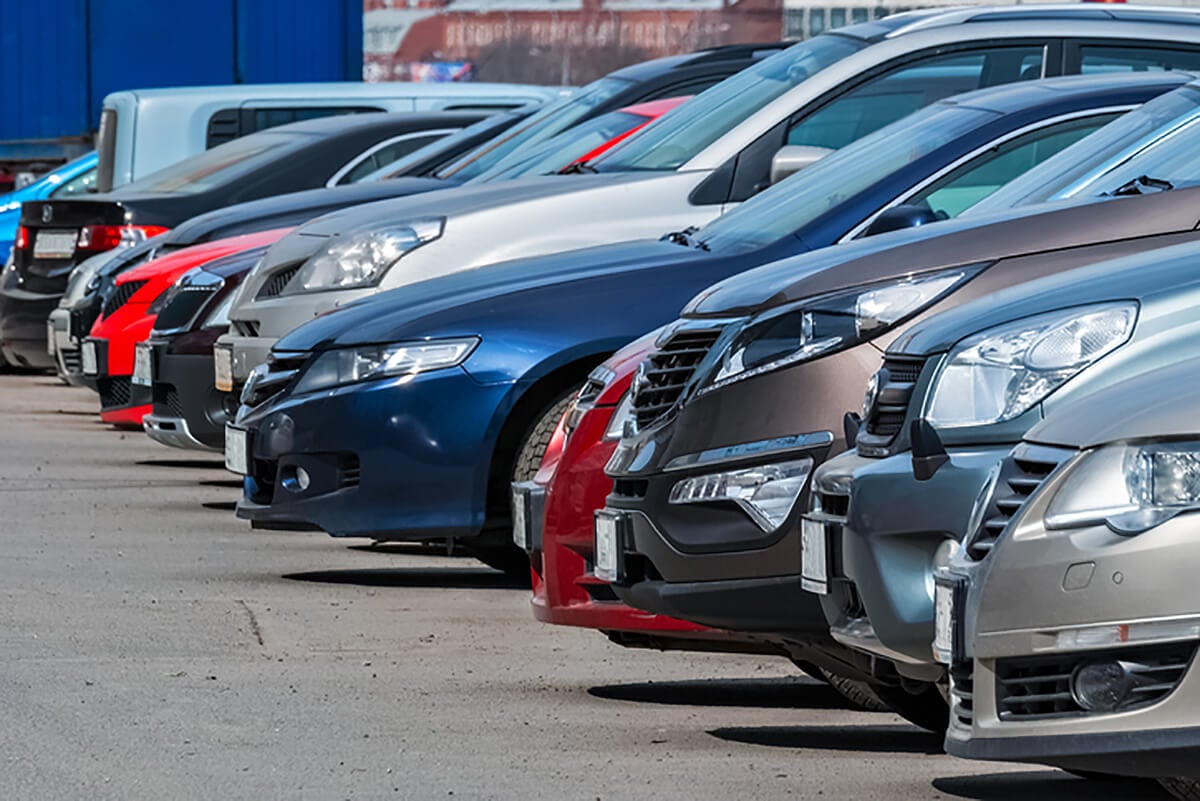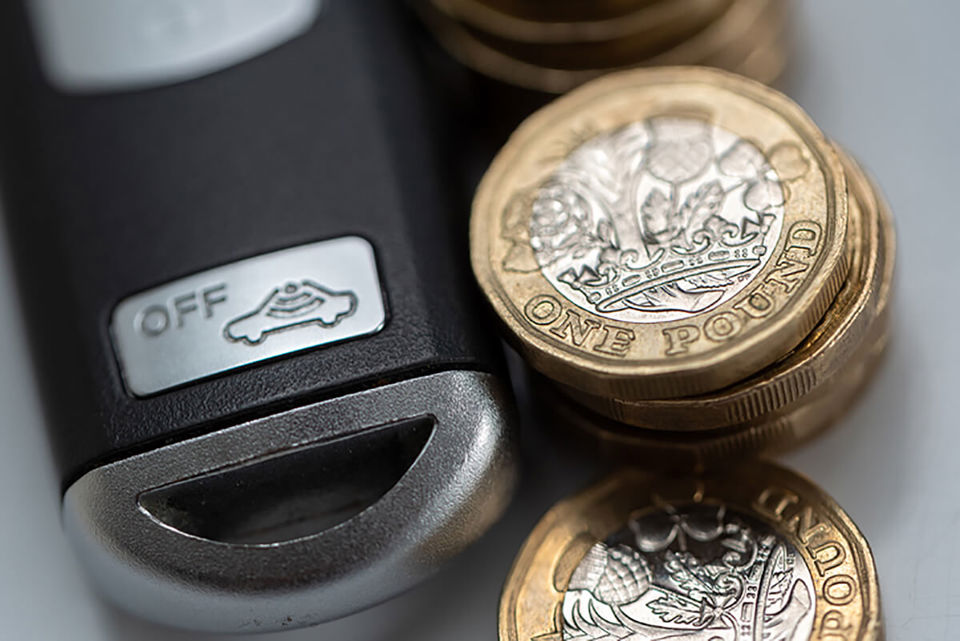The fleet industry is looking for the Chancellor to support the sector when he makes the Autumn Statement tomorrow (Wednesday).
The annual update on the state of the economy to MPs comes at a transitional phase for the UK’s fleets, and road users in general.
Paul Holland, MD of UK Fuel at Allstar Business Solutions, said: “Even if the Government has momentarily stalled in its drive towards an electric future, fleets themselves and road users in general have powerful incentives to switch away from fossil fuels, which is why we’re still seeing an increase in electric vehicle usage even after the grants for EVs have ceased.”
According to Holland, there are three factors driving the use of electric vehicles (EVs) - price, sustainability and flexibility.
“These three factors drive what we would want to see from the Treasury in the next budget,” he said.
“Fuel prices need to go down. Whether fleets use petrol, diesel, electricity or, as is increasingly likely, a combination of all of the above, they are all reporting that the prices they pay at the plug or pump are eating away at their profits.
“While the Government doesn’t control fuel prices, it could be doing more to bring them down.”
Gerry Myton, head of indirect tax at HW Fisher agrees. He said: “Continue the freeze on fuel duty, or risk fuelling inflation instead.
“Many forget that VAT is added on at the pump so if the Chancellor decides to reverse the 5p fuel duty cut this week, customers will see a 4% increase - around 6p per litre - to the price of fuel.
"Not only would this alienate motorists up and down the UK, it would be at complete odds with the Government’s mission to keep inflation under control.”
EV charging infrastructure also still needs support, says Holland. “Despite the huge rise in the number of EV charging points in the UK, there is less support for alternative fuels, which can significantly improve the sustainability of the UK’s fleets, especially those that use HGVs that cannot use electric charging,” he explained.
Furthermore, he would like to see help for small fleets. “Although a significant number of larger fleets are already using EVs, smaller companies often lack the ready cash to buy EVs,” he said.
“These smaller fleets make up a significant number of the vehicles on the road, so giving them incentives to be more flexible with the kinds of vehicles they use would make them more competitive and drive growth.”
He added: “What fleets need from the Government in general, is support to get across the first hurdle of buying the vehicles themselves and deploying charging stations at either their business or in the homes of employees.
“That can be done by new grants, but also by reducing the price of electricity and even fossil fuels so that fleets have more cash on hand to make the switch.”
Ashley Tate, MD of Allstar Chargepass UK, believes that this year's Autumn Statement poses the opportunity for the Government to show further support for both domestic and corporate EV owners.
"With the ICE ban now pushed to 2035, what businesses and consumers need is clarity on what support they can expect in the near future," he said.
"For example, knowing whether the government intends to change the benefit-in-kind rates ahead of the ICE ban or if it plans to increase road tax on EVs, bringing them in line with diesel and petrol vehicles, will hugely impact business decisions."
He continued: "Most importantly, we don’t want to see backtracking on any of the great work done already to incentivise businesses and consumers to make the transition to EVs.
"To help further this, we’d like to see the Government introduce a new grant for businesses to install home EV chargers for their employees."
One of the reasons why businesses are holding off on the EV transition is that public charging is expensive, according to Tate.
"But home charging is significantly cheaper as you can take advantage of lower rates overnight – often less than half the price," he said.
"From our latest data, we know that on average it is 55p per kWh cheaper to charge at home than it is in public, spreading that reduction over a fleet could be an incredible money-saving exercise that also helps decrease environmental impact.
"With something as little as £1000 off of, or going towards, the implementation of EV chargers businesses can start to reap the rewards of transitioning from day one.”
Long-term planning and investment
The transport and logistics sector has been calling out for measures that provide stability and that encourage and enable long-term planning and investment.
In the current economic climate, businesses and employees alike need certainty and reassurance above all from this Autumn Statement, according to Mark Perrin, business advisory partner and transport and logistics sector specialist at Menzies.
“We would support a longer-term investment plan for the freight industry, a plan which spans several terms of Government office, enabling sufficient time to implement a futuristic and sustainable infrastructure,” he said. “Short-term planning is ineffective for a key sector for UK businesses and economy.
"We also recommend a multimodal approach to the logistics industry looking at how road, sea, rail and air can play their part.”
Skills and resource shortages continue to impact the industry and more investment, potentially tax incentives, are needed to encourage new recruits into the industry, he adds.
“Investment is also needed in providing safe and secure parking spaces for truckers in the UK as there is a significant shortage.
“We recommend an expansion of the apprenticeship levy to help fill the skills gap and fund approved vocational courses.”
In addition, he would like to see enhanced tax incentives for SMEs investing in greener fleets.
“We would also recommend the Government looks at the potential for emissions rebates to encourage the take up of greener fleets and fuels, including biodiesel HVO,” he said.
Scrappage scheme wanted to drive electrification

Sogo is urging the Chancellor, Jeremy Hunt, to consider introducing a scrappage scheme. Karl Howkins, managing director of Sogo, argues that a scrappage scheme is essential to help drivers move to EVs at a time when the cost-of-living crisis and higher energy costs are proving a deterrent.
He said: "We have seen the effective use of scrappage scheme nationally in the past and currently in London, where the mayor provided funding of £160m.
“It's clear that tax incentives are helping to drive the adoption of EVs in the fleet sector, but the private motorist has fewer reasons to make the leap.
"I'm calling on the Chancellor to introduce a national scrappage scheme to remove older, more polluting vehicles from our roads and incentivise the move to EVs. The initiative could be introduced quickly and would immediately impact our journey to net zero."





















Login to comment
Comments
No comments have been made yet.